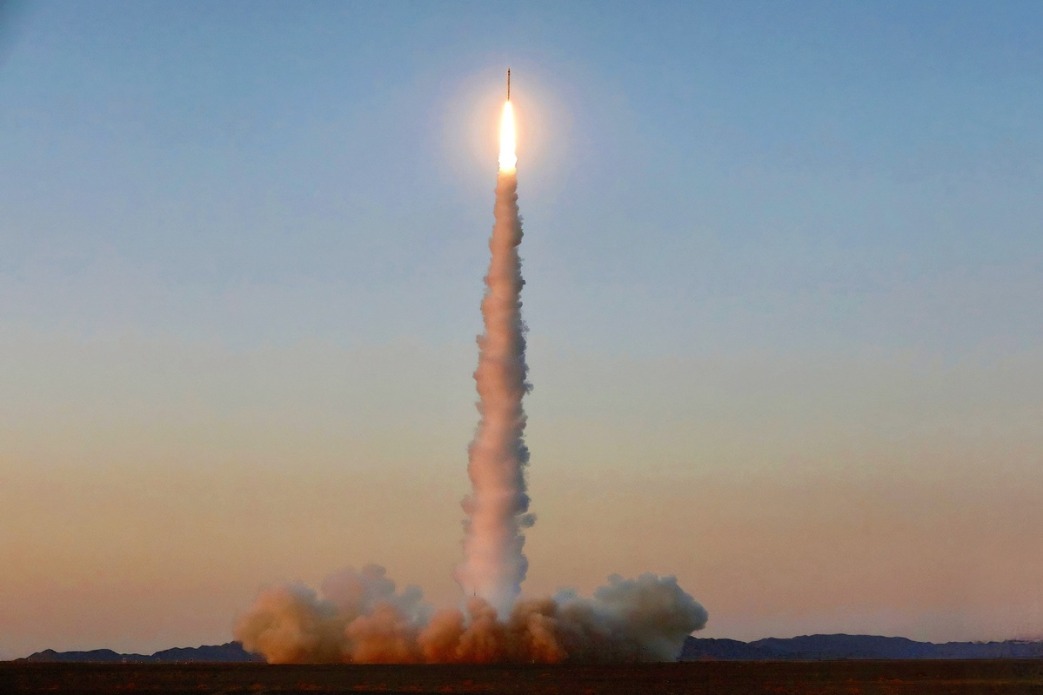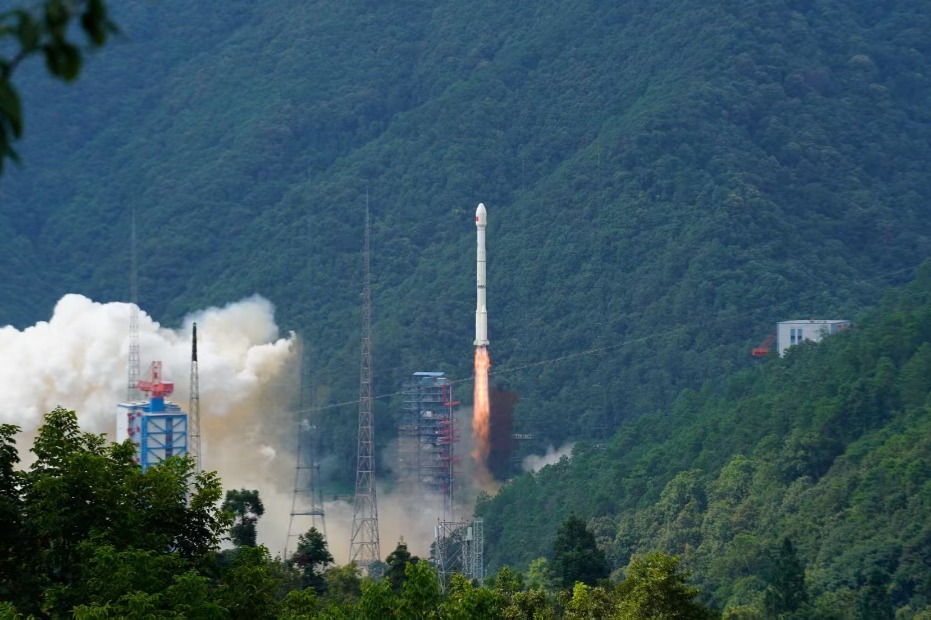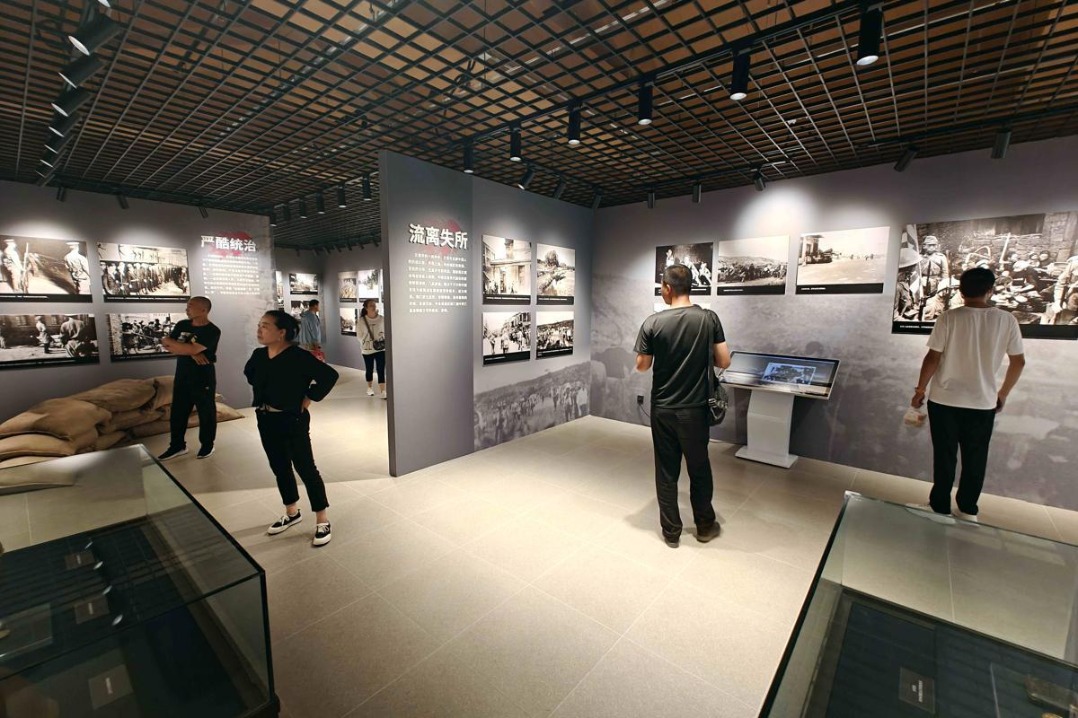Ethical AI urged in humanitarian work

While acknowledging the important role artificial intelligence can play in improving early-warning systems, emergency response and healthcare during crises, senior humanitarian experts and officials advocated for a human-centered approach in adopting AI to better meet the fundamental principles of impartiality and empathy, among others, that are central to their work.
Such an approach demands vigilance against algorithmic bias, expanded access to technology in the developing world and stronger safeguards to protect personal privacy, they said.
"AI must never become a cold substitute for human compassion. It should enhance, not replace, our ability to understand the unique stories, aspirations, fears and strengths of the people we serve," said Kate Forbes, president of the International Federation of Red Cross and Red Crescent Societies.
"We must resist the temptation to outsource judgment to algorithms. Humanitarians, not machines, must remain the final arbiters of need, priority and assistance," she added. "This requires investing in in-house expertise, ethical review and decision-making safeguards that reinforce and not replace our independence."
Forbes and other experts voiced their observations during the 4th Soochow International Humanitarian Forum that was jointly hosted by the Red Cross Society of China and Soochow University in Suzhou, Jiangsu province, from Friday to Saturday.
Experts said that artificial intelligence, when used smartly and ethically, can serve the humanitarian cause of preventing and alleviating human suffering and protecting life and health.
Forbes cited the example of an AI-enabled early warning system that the IFRC plays an important role in, and which is capable of delivering advanced alerts for tropical cyclones and flash floods in India, Fiji, Kenya and other pilot countries. In Ethiopia's Dire Dawa, flood risk mapping has helped to identify vulnerable areas since 2023.
"Predictive models are now helping us foresee displacement patterns and disease outbreaks, enabling early interventions and potentially saving lives," she said.
According to the Red Cross Society of China, AI-powered analysis and machine learning have led to an exponential increase in the efficiency of humanitarian rescue operations following natural disasters.
"AI has been deployed to assess needs in disaster-affected regions, evaluate transportation conditions, and monitor supply inventory levels, enabling optimized resource allocation and the rapid delivery of supplies to those in most urgent need," it said.
Practical usage
Furthermore, China's Red Cross has collaborated with technology companies to develop a digital mapping system for automated external defibrillators — medical devices used to save patients suffering a cardiac arrest — in several cities.
This system provides real-time information on device availability and optimal routes to access the lifesaving equipment.
China's Red Cross highlighted that AI-driven remote and smart diagnostic tools have significantly improved healthcare accessibility in remote areas, allowing residents to receive standardized examinations and professional consultations from leading doctors at major, well-known hospitals.
Balthasar Staehelin, personal envoy of the president of the International Committee of the Red Cross and head of the regional delegation for East Asia, said that because the organization primarily works in regions affected by armed conflicts, artificial intelligence, along with satellite imagery, have been utilized to map population movement, water points and transportation situations to facilitate the delivery of assistance in war zones.
"AI can also help us calculate probabilities of incomplete datasets (of missing people) and allow us to be far faster in finding them," he said, adding that combining drones and AI also presents potential for more efficient demining.
"When we use AI technologies (for humanitarian actions) ethically and smartly, the benefits clearly outweigh the disadvantages. But if we use it thoughtlessly and irresponsibly, we can do a lot of damage," he said.
A prominent concern for Staehelin is the protection of personal data, an issue relevant not only to AI but also to digital technologies in general.
"We have a crucial responsibility when we collect and manage personal data," he said. "For nonpersonal data, we have to be very careful and ensure those datasets are not biased. Biased data means they won't reflect the reality and correspond to real, concrete needs."
Forbes, from the IFRC, said that the core humanitarian principles of impartiality are now being challenged in the AI era by algorithmic bias.
"AI systems are only as good as their underlying design and the data they learn from. As we know, humanitarian data is often incomplete, inconsistent, or historically biased. If these flaws go unexamined, AI may unintentionally reinforce the very inequities we strive to address," she said.
She advocated rigorous audits, inclusive design, diverse datasets, and human oversight to detect potential geopolitical or commercial influences within an AI system.
China's Red Cross said that it is necessary to establish a rigorous ethical review mechanism to guarantee fairness and inclusivity of AI systems.
It added that humanitarian organizations in developing countries face significant difficulties in deploying AI tools due to financial constraints, a gap that could deepen the digital divide and hinder critical early-warning and emergency rescue operations in those regions.
He Wei, president of China's Red Cross, called for the establishment of a platform to consolidate AI-powered humanitarian technologies, where all countries are encouraged to share their outcomes to benefit those in need.
"China's Red Cross is willing to cooperate with the international society to build a fairer and more resilient global humanitarian action system," he said.
wangxiaoyu@chinadaily.com.cn
- Ethical AI urged in humanitarian work
- President advocates for more just, prosperous world
- Xi's discourses on work related to women, children, families published in English
- Global scientists discuss the role of big data in advancing UN goals
- Ferry routes and schools closed as Typhoon Tapah nears Guangdong
- Xi to attend BRICS leaders virtual meeting




































